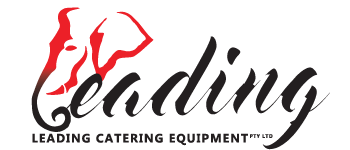A commercial kitchen is the backbone of any hospitality establishment, from bustling restaurants to efficient catering businesses. Investing in the right equipment is crucial for smooth operations, quality output, and profitability. However, navigating the vast world of commercial kitchen equipment can be daunting, and costly mistakes are easily made. This blog aims to illuminate common pitfalls and offer practical suggestions to help you make knowledgeable decisions.
One of the resourceful and climate-friendly appliances that helps with smart design is our Display Fridges. Check them out here.
1. Lack of Proper Planning and Needs Assessment:
The most fundamental mistake is diving into purchases without clearly understanding your needs. Before you even browse catalogues or visit showrooms, ask yourself:
Consequences of Poor Planning:
2. Prioritising Price Over Quality:
While budget constraints are understandable, opting for the cheapest equipment can lead to long-term problems. Low-quality machine often has:
Investing in quality equipment offers:
3. Ignoring Energy Efficiency:
Commercial kitchens consume significant amounts of energy. Choosing energy-efficient commercial catering equipment can significantly reduce operating costs and environmental impact. Look for:
4. Neglecting Maintenance and Cleaning:
Regular maintenance and cleaning are essential for prolonging the lifespan and ensuring the optimal performance of your product. Neglecting these tasks can lead to:
5. Overlooking Ventilation and Hood Systems:
Proper ventilation is crucial for maintaining air quality and safety in a commercial kitchen. It removes smoke, grease, and odours, preventing health hazards and fire risks. Mistakes include:
6. Not Considering Ergonomics and Employee Safety:
A well-designed kitchen should prioritise ergonomics and employee safety. Consider:
7. Failing to Research Suppliers and Manufacturers:
Choosing reputable suppliers and manufacturers for your commercial kitchen equipment for sale is crucial for ensuring quality, reliability, and after-sales support. Look for:
8. Ignoring Local Regulations and Codes:
Commercial kitchens are subject to various local regulations and codes related to food safety, building codes, and fire safety. Inability to follow all these regulations can lead to:
9. Underestimating Setup Expenses:
Installation expenses can highly affect the overall budget. Consider:
10. Not Testing Equipment Before Purchase:
Whenever possible, test the model before making a purchase. This step allows you to:
11. Buying Used Products Without Proper Inspection:
When you shop commercial kitchen equipment that is of a used nature, it can be cost-effective, but it requires careful inspection. Look for:
12. Not Considering Future Expansion:
Consider your future growth plans when purchasing equipment. Choosing modular or expandable options can accommodate future expansion.
13. Failing to Document Purchases and Warranties:
Keep detailed records of all purchases, including:
14. Not Training Staff on Equipment Operation:
Proper training on product operation is essential for safety and efficiency. Ensure your staff is trained on the following:
15. Underestimating the Importance of Refrigeration:
Refrigeration is critical for food safety and quality. Invest in reliable and efficient refrigeration machines that meet your specific needs.
16. Not Considering Water Quality:
Water quality can affect the functionality and life of your offering. If necessary, consider installing water filtration or softening systems.
17. Buying Appliance That Is Difficult to Clean:
Choose new or second-hand kitchen equipment that is effortless to clean and maintain. This process will save time and effort and ensure food safety.
18. Ignoring the Importance of Smallwares:
Smallwares, such as utensils, cookware, and storage containers, are essential for efficient kitchen operations. Don't overlook these items when planning your budget.
19. Failing to Get Multiple Quotes:
Obtain multiple quotes from different suppliers and manufacturers before making a purchase. This step will help you get the best price and ensure you are making an informed decision.
20. Rushing the Purchasing Process:
Don't rush the purchasing process. Take your time to research and compare various alternatives before reaching a decision.
21. Not asking for customer references:
A good company will have good references. Ask to speak to other companies that have purchased similar products.
22. Not considering the life cycle costs:
The initial purchase price is only one part of the cost. Consider the life cycle costs, including maintenance, repairs, energy consumption, and replacement costs.
23. Not understanding the terms of the warranty.
Confirm whether you fully understand the terms of the warranty before making a purchase.
24. Not planning for downtime.
Machine breakdowns are inevitable. Have a plan in place for how you will handle downtime.
25. Not getting professional advice.
Consult with a professional kitchen designer or product specialist to ensure you are making the right decisions.
Purchasing commercial kitchen equipment requires careful planning and research. By preventing these routine errors, you can ensure your kitchen operates efficiently, complies with regulations, and meets your business's needs. Before purchasing, consider factors such as space, workflow, energy efficiency, and supplier reputation. Investing in the right appliance will save you money in the long run and help your food business thrive.






